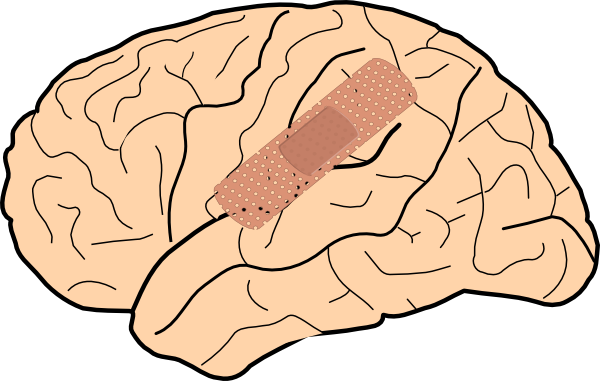- Home
- Medical news & Guidelines
- Anesthesiology
- Cardiology and CTVS
- Critical Care
- Dentistry
- Dermatology
- Diabetes and Endocrinology
- ENT
- Gastroenterology
- Medicine
- Nephrology
- Neurology
- Obstretics-Gynaecology
- Oncology
- Ophthalmology
- Orthopaedics
- Pediatrics-Neonatology
- Psychiatry
- Pulmonology
- Radiology
- Surgery
- Urology
- Laboratory Medicine
- Diet
- Nursing
- Paramedical
- Physiotherapy
- Health news
- Fact Check
- Bone Health Fact Check
- Brain Health Fact Check
- Cancer Related Fact Check
- Child Care Fact Check
- Dental and oral health fact check
- Diabetes and metabolic health fact check
- Diet and Nutrition Fact Check
- Eye and ENT Care Fact Check
- Fitness fact check
- Gut health fact check
- Heart health fact check
- Kidney health fact check
- Medical education fact check
- Men's health fact check
- Respiratory fact check
- Skin and hair care fact check
- Vaccine and Immunization fact check
- Women's health fact check
- AYUSH
- State News
- Andaman and Nicobar Islands
- Andhra Pradesh
- Arunachal Pradesh
- Assam
- Bihar
- Chandigarh
- Chattisgarh
- Dadra and Nagar Haveli
- Daman and Diu
- Delhi
- Goa
- Gujarat
- Haryana
- Himachal Pradesh
- Jammu & Kashmir
- Jharkhand
- Karnataka
- Kerala
- Ladakh
- Lakshadweep
- Madhya Pradesh
- Maharashtra
- Manipur
- Meghalaya
- Mizoram
- Nagaland
- Odisha
- Puducherry
- Punjab
- Rajasthan
- Sikkim
- Tamil Nadu
- Telangana
- Tripura
- Uttar Pradesh
- Uttrakhand
- West Bengal
- Medical Education
- Industry
Study establishes hypertension as cause for brain damage

It has been earlier established that high blood pressure or hypertension can lead to damage of kidney or heart. However, experts are out to establish the link between hyper tension leading to damaged nerve tracts connecting different parts of the brain, a study that employed a new imaging technique finds.
"We already have clear ways to explore the damage high blood pressure can cause to the kidneys, eyes and heart. We wanted to find a way to assess brain damage that could predict the development of dementia associated with vascular diseases," said the study's senior author Daniela Carnevale from the Sapienza University of Rome.
While there has been a lot of research on hypertension-related brain changes in the grey matter, the area of brain damage detected is linked to difficulties in certain cognitive skills, decision-making and the ability to regulate emotions.
Researchers used diffusion tensor imaging (DTI), an enhancement of magnetic resonance imaging (MRI), to evaluate and compare the structural and functional properties of the main connections between different brain regions.
Fifteen participants were on medication for moderate to severe high blood pressure and 15 participants had normal blood pressure. Participants were also given a cognitive assessment.
The DTI revealed that participants with high blood pressure had damage to brain fibres that affect non-verbal functions; nerve fibres that affect executive functioning and emotional regulation; and limbic system fibres, which are involved in attention tasks.
In addition, imaging and laboratory tests indicated damage to the heart and kidneys from high blood pressure.
Researchers also found that those with high blood pressure performed significantly worse on two different assessments of cognitive function and memory.
DTI, also called tractography, is not performed in routine medical practice, but the researchers suggest that physicians should start to consider potential brain damage as they treat patients with high blood pressure.
The findings were presented at the ongoing American Heart Association's 2015 high blood pressure conference in Washington.
"We already have clear ways to explore the damage high blood pressure can cause to the kidneys, eyes and heart. We wanted to find a way to assess brain damage that could predict the development of dementia associated with vascular diseases," said the study's senior author Daniela Carnevale from the Sapienza University of Rome.
While there has been a lot of research on hypertension-related brain changes in the grey matter, the area of brain damage detected is linked to difficulties in certain cognitive skills, decision-making and the ability to regulate emotions.
Researchers used diffusion tensor imaging (DTI), an enhancement of magnetic resonance imaging (MRI), to evaluate and compare the structural and functional properties of the main connections between different brain regions.
Fifteen participants were on medication for moderate to severe high blood pressure and 15 participants had normal blood pressure. Participants were also given a cognitive assessment.
The DTI revealed that participants with high blood pressure had damage to brain fibres that affect non-verbal functions; nerve fibres that affect executive functioning and emotional regulation; and limbic system fibres, which are involved in attention tasks.
In addition, imaging and laboratory tests indicated damage to the heart and kidneys from high blood pressure.
Researchers also found that those with high blood pressure performed significantly worse on two different assessments of cognitive function and memory.
DTI, also called tractography, is not performed in routine medical practice, but the researchers suggest that physicians should start to consider potential brain damage as they treat patients with high blood pressure.
The findings were presented at the ongoing American Heart Association's 2015 high blood pressure conference in Washington.
Next Story


